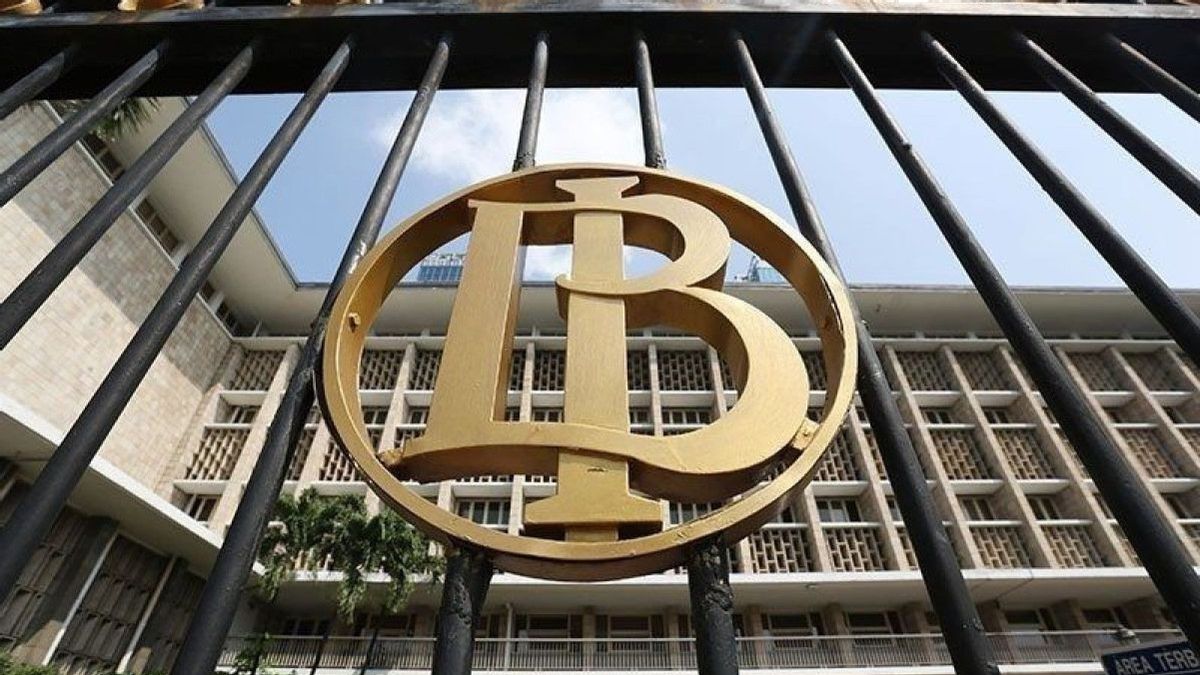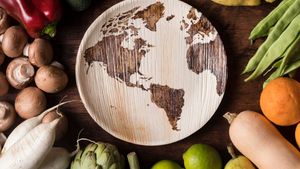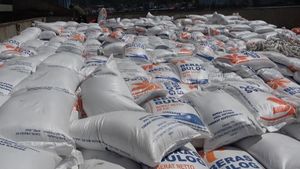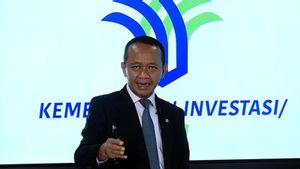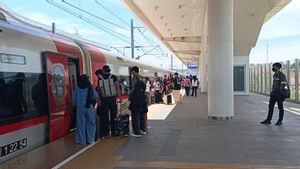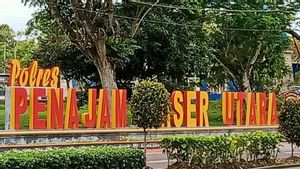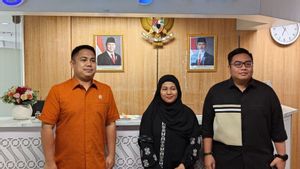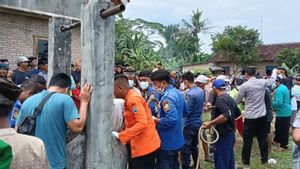JAKARTA - Bank Indonesia continues to strengthen synergy and innovation in realizing national price stability and food security through the National Food Inflation Control Movement (GNPIP) continues to be strengthened to support efforts to control regional inflation.
Senior Deputy Governor of Bank Indonesia, Destry Damayanti said that she would strengthen coordination and synergy in controlling inflation in maintaining price stability and building food security in order to mitigate future inflation risks, especially in terms of supply, namely production disruptions due to natural disasters and seasonal factors and distribution constraints.
"For this reason, food inflation control innovation in an end-to-end manner or from upstream to downstream must be optimized simultaneously to increase productivity on the upstream side and encourage the expansion of distribution coverage on the downstream side," he explained in his official statement, Friday, May 17.
BI and the Regional Inflation Control Team (TPID) of the Sumatra Region launched Sumatra Control Synergy Activities (ANDALAS) focused on several price control innovations.
The first is through the red chili planting movement with the method of intensification and digital agricultural cultivation to encourage productivity of strategic commodities in collaboration with TPID and surrounding universities.
Second, the cheap market car program completes inflation and is prone to food to expand the reach of cheap markets to food-prone areas. Third, optimizing the efficiency of food supply chains in the Sumatra region.
The launch of the innovation was carried out in the Sumatra Region GNPIP activity which was held in Pekanbaru this Friday, with the theme Synergy and Innovation Encourage Strengthening Productivity, Supply, and Supply Chain Efficiency to Support Price Stability and Food Security Sumatra.
Various innovation programs for the GNPIP Sumatra Region launched today are expected to be replicated by all TPID in supporting regional independence in the future and advancing economic resilience, including the development of innovation in the availability of integrated strategic food data monitored by all local governments in the form of dashboards to monitor supply conditions to strengthen the realization of Regional Cooperation (KAD).
Bank Indonesia believes that the synergy of all TPIDs in the Sumatra Region and nationally through an adaptive and innovative inflation control policy program will continuously realize the maintenance of inflation according to the target of 2.5 percent plus minus 1 percent and be able to accelerate economic recovery.
Furthermore, Deputy for Macroeconomic and Financial Coordination of the Coordinating Ministry for Economic Affairs, Ferry Irawan, appreciated the synergy and collaboration of the TPID for the Sumatra Region which focused on handling food inflation. However, the availability of interim and inter-regional supplies is still a major challenge in stabilizing food prices.
Ferry conveyed that optimizing the use of cultivation technology, utilization of storage facilities, expansion of cooperation between regions (KAD) and strengthening connectivity between regions need to be encouraged to support price stability and suppress price disparities between regions.
The government also continues to strive to increase distribution efficiency, one of which is through a fiscal incentive policy related to the Motorized Vehicle Fuel Tax (PBBKB) which is directed so that inflation control can be realized.
On the financing side, the government encourages the distribution of People's Business Credit (KUR) in 2024, especially in the agricultural sector which supports national food security.
SEE ALSO:
Acting Governor of Riau, SF Hariyanto said that the implementation of GNPIP is a form of commitment and seriousness of TPID cooperation at the Provincial and Regency/City levels in the Sumatra region in an effort to control regional inflation.
"Based on regional characteristics, Riau is an area with a food balance deficit so that the fulfillment of Riau staple food needs (such as rice, various chilies, onions) still relies on supplies from other regions, such as West Sumatra, North Sumatra, Aceh, and other neighboring areas," he explained.
Nevertheless, TPID in Riau Province continues to strive to increase local production and ensure adequacy of supply in Riau at a stable and affordable price for the community.
The GNPIP Sumatra Region is also strengthened by the expansion of the KAD, financing support to strengthen production capacity and independence of farmers' businesses in the field of food security, cheap market activities, and distribution of agricultural product distribution equipment.
The English, Chinese, Japanese, Arabic, and French versions are automatically generated by the AI. So there may still be inaccuracies in translating, please always see Indonesian as our main language. (system supported by DigitalSiber.id)
